Summer before Scotland
Back to list of blog postsOne month at the Aspen Music Festival and School
Written on 25 August 2024
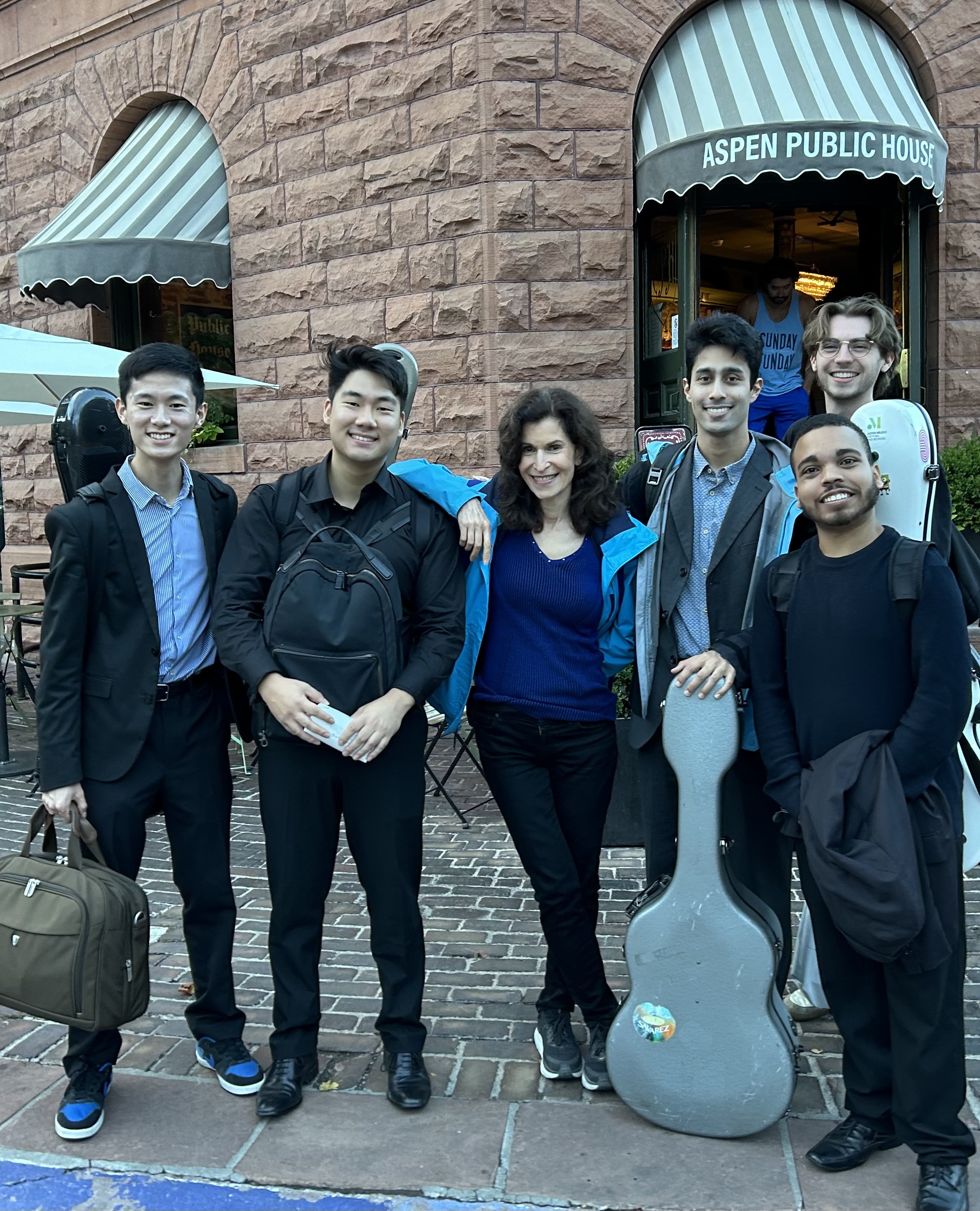
I had a great time this summer spending 4 weeks at the Aspen Music Festival and School in Aspen, Colorado! I think it's fairly common for aspiring classical musicians to attend summer music schools such as this one that are several weeks long, since they are a rare opportunity to meet other serious aspiring musicians outside of your own school, as well as study privately with another teacher for any meaningful length of time. This seems to be perhaps the only profession where it's socially acceptable to attend summer camp into your mid twenties! I had not done a camp like this before, but I can definitely attest to the value now, since this summer's experience at Aspen turned out to be one of the most significant learning experiences in my life and perhaps a turning point in how I see my path in music unfolding.
The guitar teacher at Aspen is Sharon Isbin, who is also the founder (and sole professor) of the guitar department at The Juilliard School in New York City. During one's time at Aspen, they get to have several lessons with her. It usually turns out to be four lessons, but in my case it turned out to be five, simply because I had a lot of music prepared. The lessons take place in an open setting similar to a masterclass, and all guitar students are encouraged to pitch in with their ideas and thoughts. It's a very productive format -- I felt that every lesson left me with tons of new material to work through while practicing. For readers who might plan on participating in Aspen in the future, I'd highly recommend presenting practiced and polished pieces during your lessons, as opposed to a piece that you've only been working on for a short time. All decent teachers say basically the same things to you when you present a piece that you're in the process of learning: make sure you get that difficult passage down well, mute that over-ringing note that you didn't notice before, etc. It's only when you present a piece that you already see as polished and performance-ready that you learn what a specific teacher can do to help you improve. Presenting a polished piece will ensure that Professor Isbin tells you things that you definitely wouldn't have thought of otherwise.
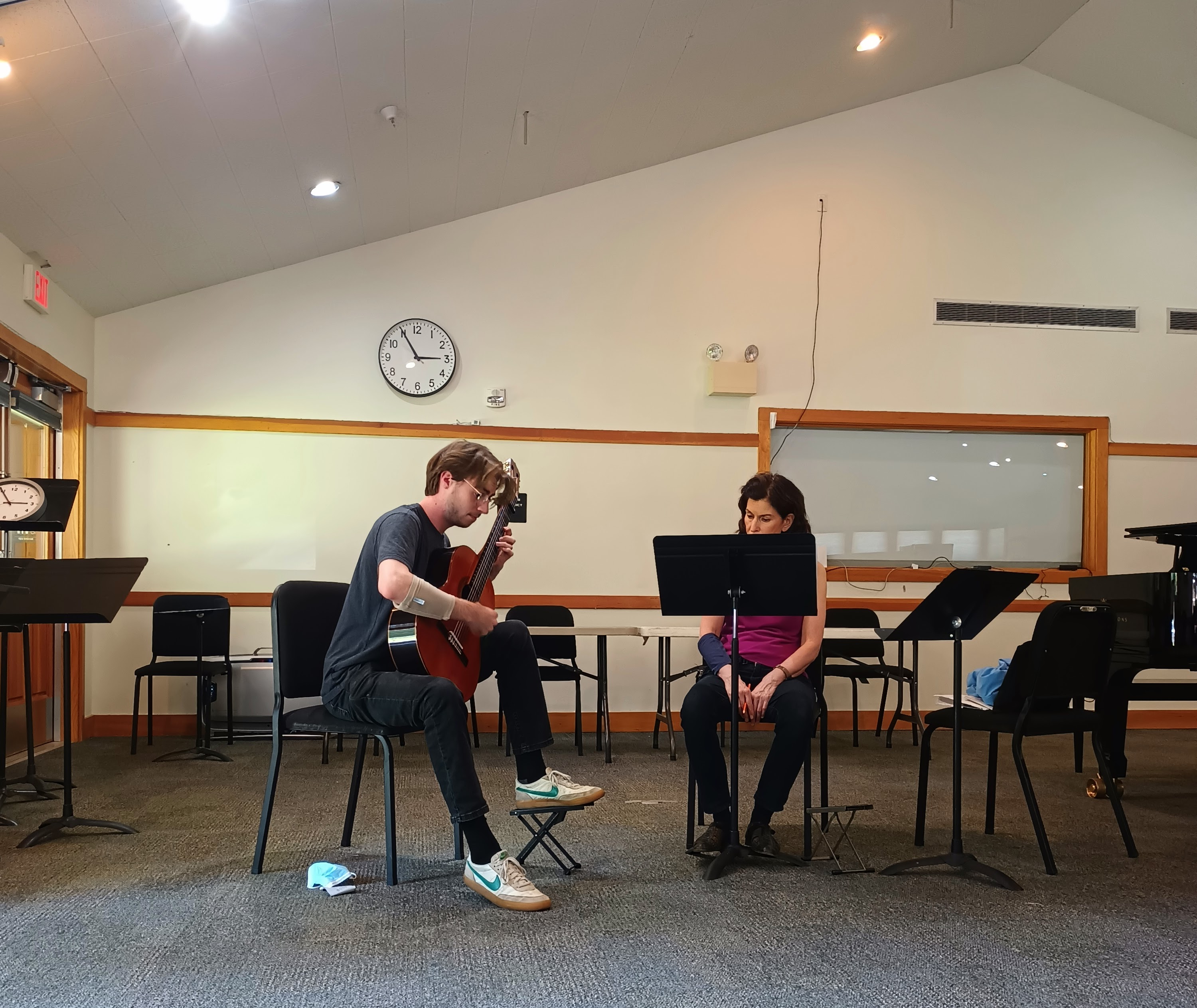
In my case, I did show up well polished pieces to every lesson, or at least I thought they were well polished! I played pieces I'd performed extensively this year such as the Andante and Allegro non troppo from Ponce's Sonata Romantica which I had used to win prizes in several competitions. I thought my interpretations were hot stuff, but Professor Isbin dissected them with a level of detail that I really hadn't experienced before from any other guitarist. My lesson on the Andante was particularly memorable -- this was a piece I thought I knew like the back of my hand, but as we pored over the piece measure by measure in a lesson that lasted nearly two hours, I realized that there were loads of little things I hadn't noticed or hadn't thought of. Dynamic markings executed a beat too early or too late, articulations played just a bit off the mark, etc. It made me realize that approaching music in this way that I might have previously dismissed as needless perfectionism was really the next step in improving as an artist.
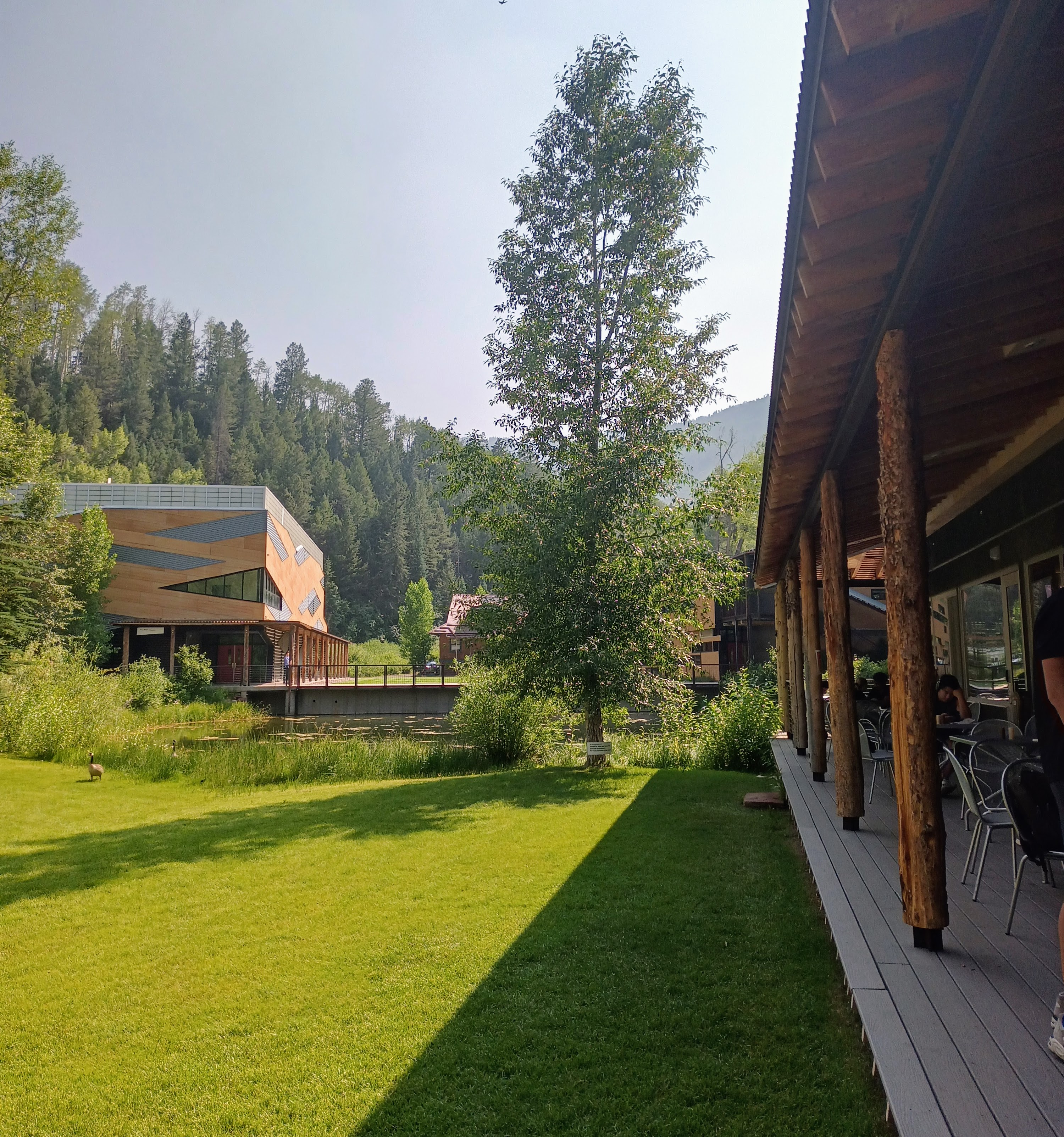
There were five other students at Aspen, and together we got to work on some ensemble pieces as well. I participated in two guitar quartets playing pieces by Paulo Bellinati and Francis Kleynjans, and there was also a guitar trio that I was not part of which played a rondo by Paul Hindemith. Rehearsals were led by the two teaching assistants (who were basically students Professor Isbin had also invited to lead ensemble rehearsals): Alan Liu and Eduardo Gutteres.
We also had several opportunities to perform around Aspen and the surrounding area. First was a concert at the public library in nearby Basalt followed by a concert at Anderson Ranch in Snowmass Village. Then, we had a concert at the Aspen Art Museum followed by a final performance: a guitar studio showcase at Aspen Music Festival's Harris Hall. Professor Isbin only showed up to the final two concerts, as a courtesy to allow us to relax a bit at the first two!
Besides guitar playing, there was plenty of fun to be had around town and in the surrounding area. The area around Aspen is full of spectacular hikes, albeit grueling ones! The two most memorable hikes that I did were Cathedral Lake and Castle Peak. I climbed these hikes together with Nik Divall, a friend and fellow guitar student at Aspen, as well as Solis Dornan, a (former) fellow Oberlin student who was visiting Aspen for a short time.
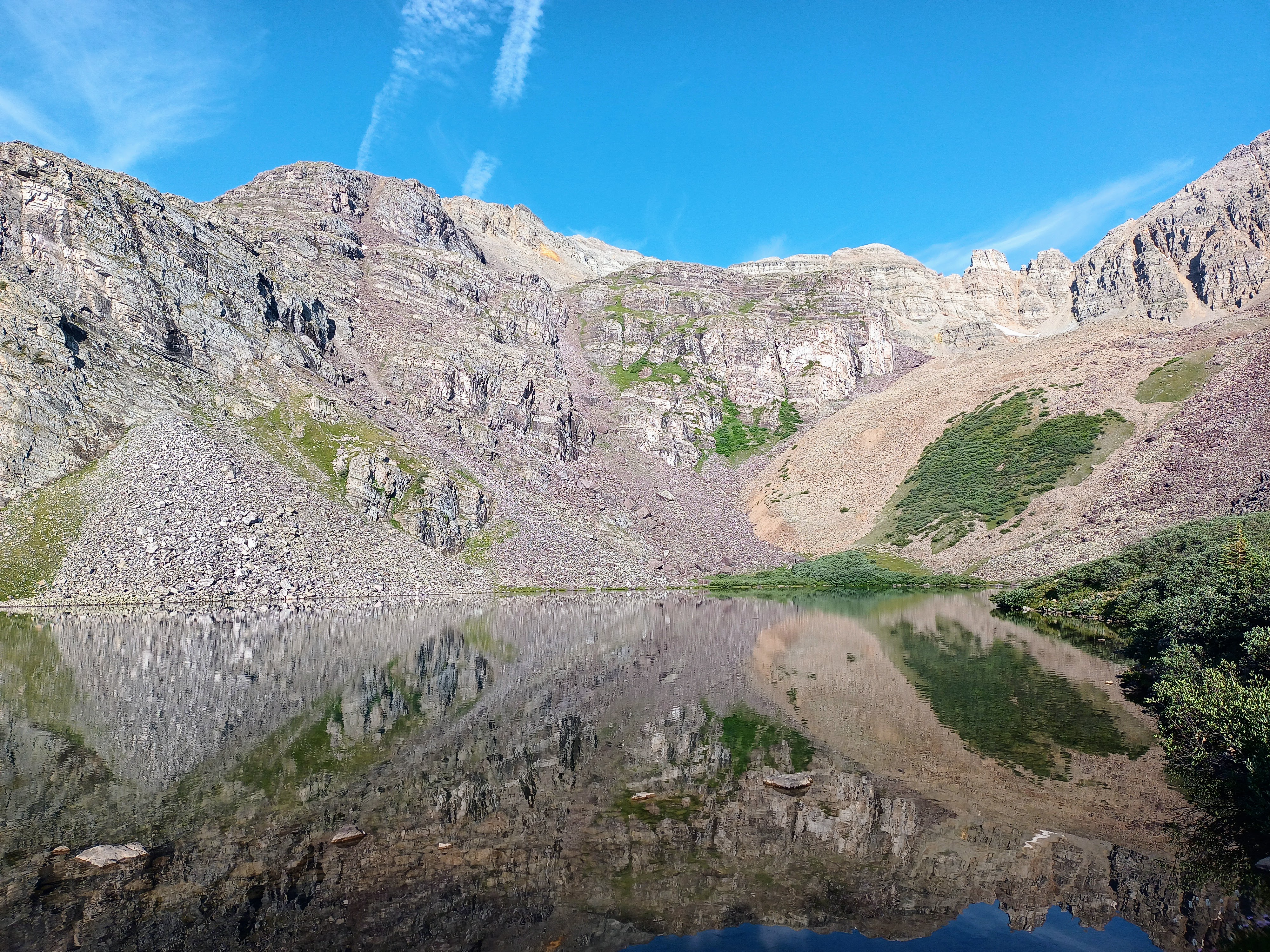
We began our Cathedral Lake adventure before the sun came up, driving to the trailhead in Solis' pickup truck. Over the course of about an hour and a half, we climbed 2,000 feet over around 2.7 miles to the lake, which really did look like a cathedral. It even had a distant echo to it -- words would return to you clearly in about two seconds. On the way up, we were treated to stunning views of the sunrise and vertigo-inducing overlooks into a valley filled with rocks deposited by glaciers. The way down was shorter -- about 45 minutes -- and then we were back at Aspen by 10 am!
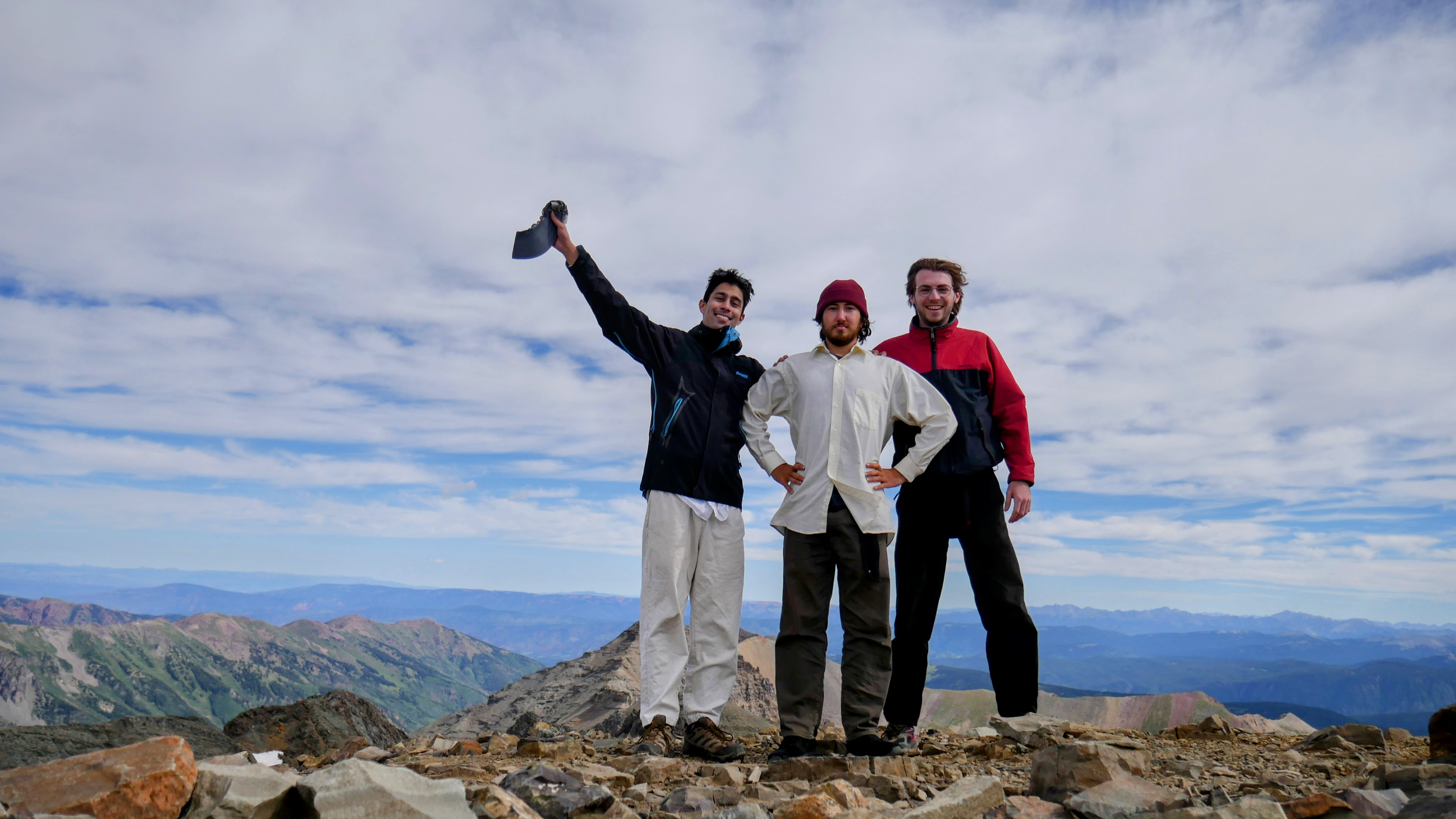
Castle Peak is one of Colorado's 59 "14ers", or peaks above 14,000 feet. 14ers are all notoriously difficult, mainly because the air at 14,000 feet is unspeakably thin! Even for us who were already acclimated to Aspen at 7,800 feet, the air at the top of Castle Peak felt like breathing nothing. Even though the hike started at 9,000 feet and we were prepared for a long and grueling morning, we got a lucky break when a pickup truck stopped and offered to take us up part of the way! It cut about 2,500 feet off the elevation gain, depositing us at nearly 12,000 feet. From there, we climbed to the top over the course of about two hours -- over boulders, scaling steep faces, and near the end, hiking along a ridge which fell off on both sides. The summit was astounding. The feeling of standing on a 14,279 foot peak where everything around you for many miles is several thousand feet shorter than you is quite exhilarating. I can (nearly) understand why some people develop obsessions with climbing such tall mountains!
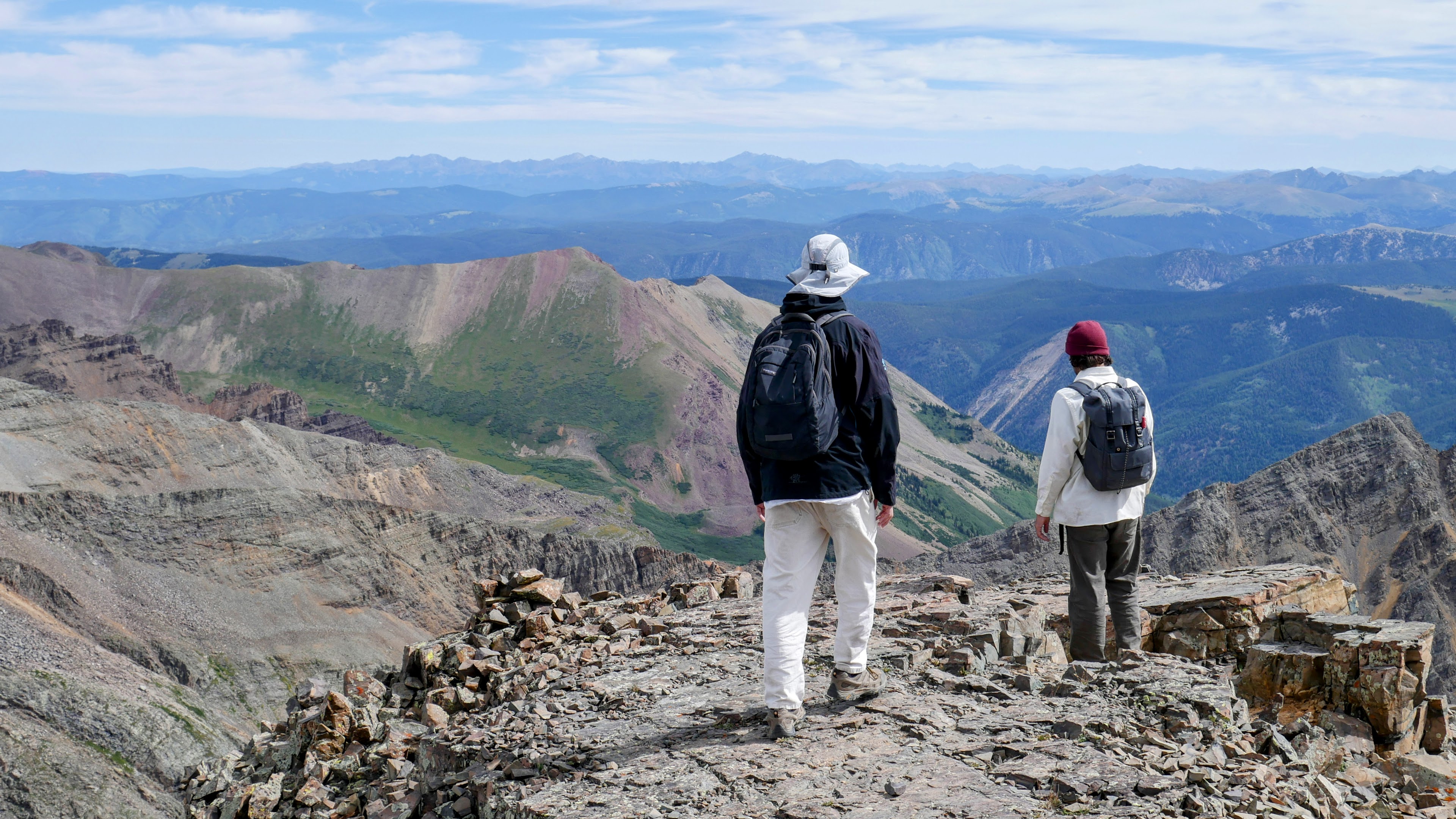
On the way down, we encountered an alpine lake at ~13,500 feet, and a snowdrift slightly below that where we had a great time sliding down on our butts. Unfortunately there was no pickup truck to carry us down the mountain, so we had to hike the whole 5 miles back, with a 5,000 foot (a whole mile!) elevation loss. It was definitely the most memorable hike I've ever done.